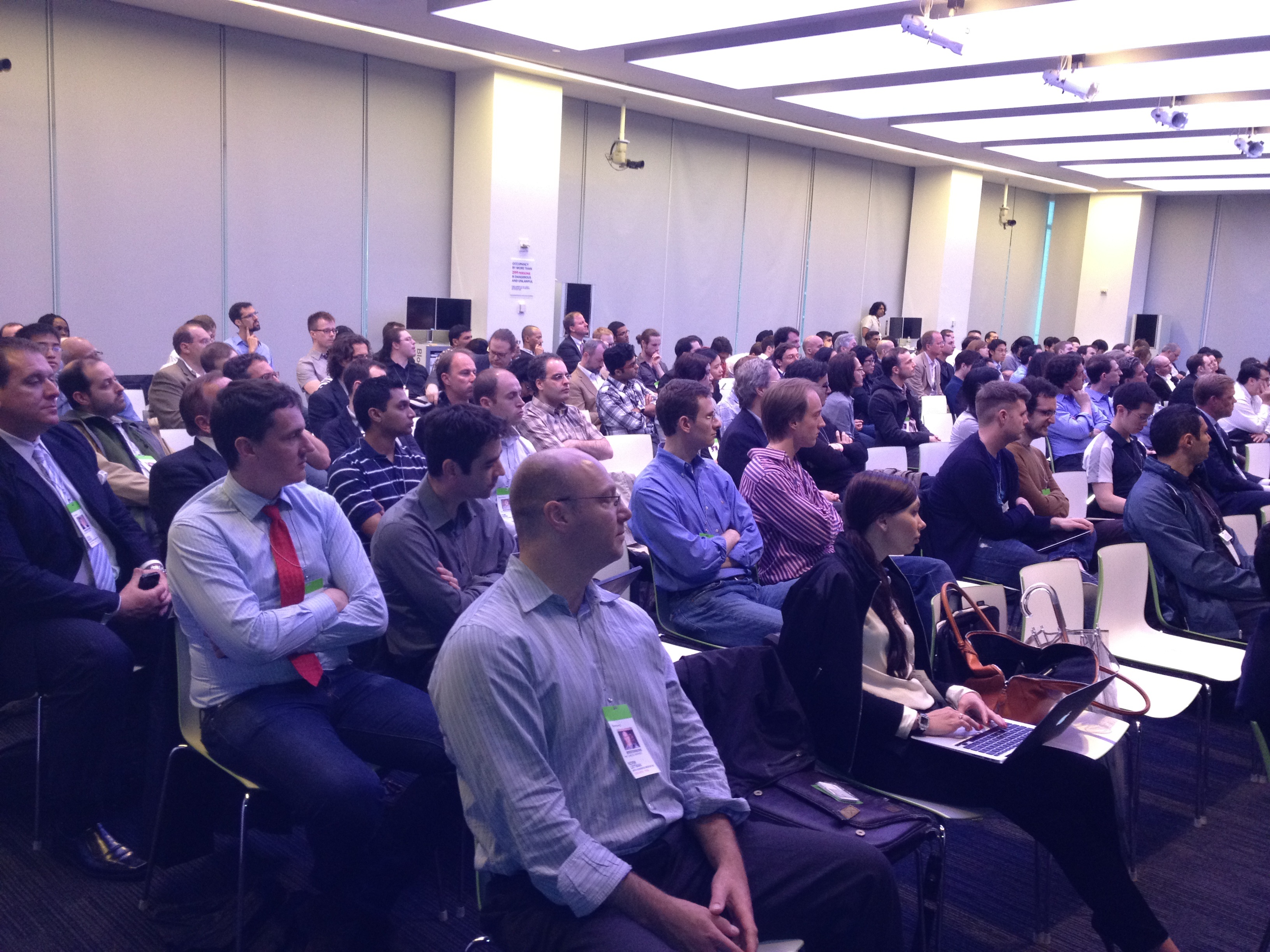Big Data in NYC is all business, and that's a good thing

I've now attended two meetings of the NYC Data Business Meetup, a group that serves as a scale model for the wider Big Data phenomenon. The group is run by Matt Turck and Shivon Zilis of Bloomberg Ventures, and that's a good start right there. Turck and Zilis are involved in the funding side financial technology and seem to have both the connections and good taste to pull in executives from some of the hottest Big Data startups. And they do good venues too, having so far booked very nice rooms in the Midtown Manhattan headquarters of parent company Bloomberg L.P., which is arguably the oldest Big Data company out there. All-star cast At the most recent meeting, the panel consisted of leaders from "NewSQL" database player VoltDB, Cassandra in-the-cloud provider DataStax, hosted Business Intelligence (BI) and dashboard vendor RJ Metrics and customer analytics specialist Custora.
It's not all about the speakers though; the audience is pretty impressive too. The most recent meeting, which took place on May 21st, had about 150 people in the audience, and that was on a day that saw almost incessant torrential downpours in NYC. At the prior month's meeting, which took place on a much nicer day, there seemed to be more like 200 people attending and the rather large meeting space was standing-room only.
Exceptional, or maybe just different? One or two panelists seemed a bit thrown off by my question. Others earnestly felt the Big Data world was unique and didn't fit the enterprise software stack template, citing Splunk as an example. I'm skeptical, to be honest.
But I'm also genuinely optimistic. Bubble or not, I've always believed that companies focused on data have huge value that transcends their hype cycle. Plus, startups and their funders have done such a good job at making Big Data a household term that I think the residual post-bubble activity will be a larger phenomenon than the BI and relational database bonanzas that preceded it. Big Data is here to stay, and real events with real people are -- for me at least -- proving that out.
Photos courtesy of Matt Turck
